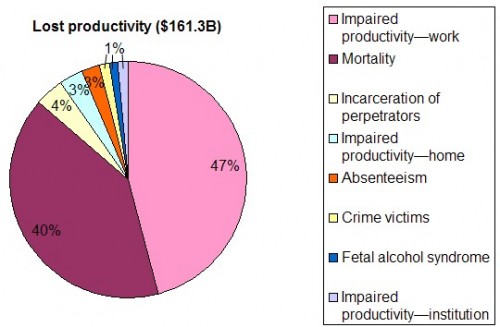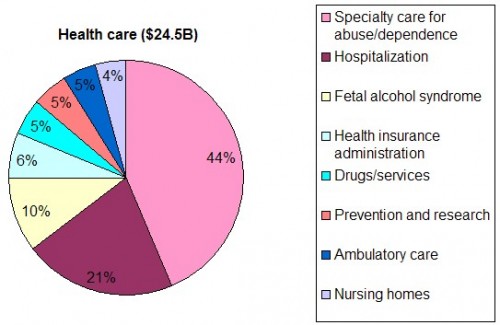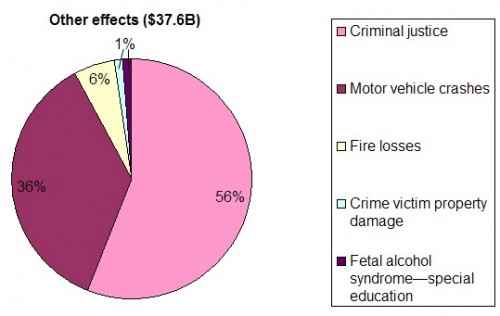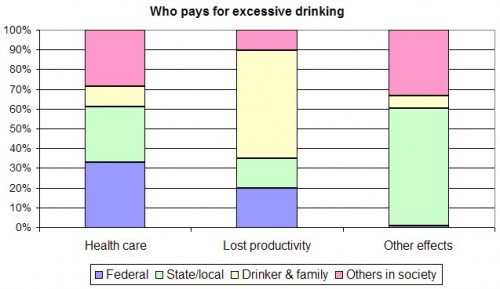Before the recent publication by Ellen Bouchery, Henrick Harwood, Jeffrey Sacks, Carol Simon, and Robert Brewer, the economic cost of excessive use of alcohol had not been estimated in near 15 years. They’re high, as Aaron wrote earlier this week.
The estimated $223.5 billion cost of excessive drinking in 2006 is on a par with the costs of other major health-risk behaviors. For example, smoking currently costs the U.S. about $193 billion annually—$97 billion from lost productivity and about $96 billion in healthcare costs. The total direct and indirect cost of physical inactivity was estimated to be in excess of $150 billion in 2000.
To illustrate how those costs are generated, I turned some of the data in the authors’ Table 1 into the following pie charts. Lost productivity accounts for most of the cost, $161.3B. Health care and other effects account for $24.5B and $37.6B, respectively. Crime victim property damage is a relatively minor cost, probably a lot smaller than most would have expected.
Who pays all these costs? That varies by cost type, as shown in the following chart, from Table 2 of the paper. Federal and state/local governments pay most of health care and other costs. However, the cost of lost productivity predominantly falls on the drinker and family.






